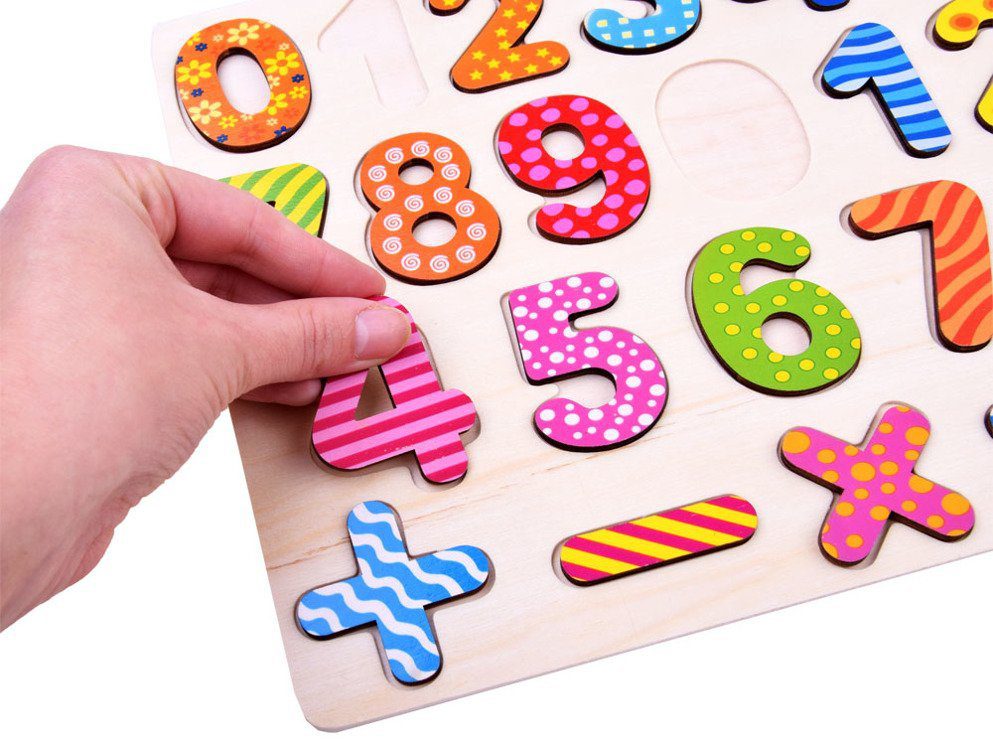Boost Math Skills With Number Recognition Toys
As parents, we all want our children to get the best start in life. That includes the development of cognitive skills such as number recognition, which is essential for early childhood development. Number recognition forms the foundation of all mathematical concepts, including counting, addition, and subtraction. As children master number recognition, they gain greater confidence and understanding of math, setting the stage for success in the classroom and beyond.


The Importance of Number Recognition in Early Childhood Development
The advancement of technology has made education much easier and more accessible to children today. However, developing number recognition is still a fundamental element in a child’s early education. According to the National Center for Education Statistics, a child’s ability to count, recognize numbers, and perform basic mathematical operations in preschool is a strong predictor of later academic performance in math.
Various scientific research has also confirmed the significance of number recognition in early childhood development. A 2010 study by researchers at the University of Missouri found that children who possess better number recognition skills also show stronger math abilities in primary school. Another study by researchers at the University of California, Irvine found that early math skills lead to better academic performance well into high school.
Therefore, it’s essential for parents to ensure that their children learn and master number recognition at an early age. There are many toys available in the market that can help children with number recognition while having fun at the same time.
Below are five types of toys that parents may consider purchasing to help children learn and recognize numbers more efficiently:
Abacus:
An abacus is an excellent toy for kids to learn counting and number recognition. It is a simple device consisting of beads or disks that slide back and forth along rods. Children can move the beads or disks to count and perform simple mathematical operations. The abacus is a fun, colorful tool that engages children while improving their math skills.
Number Puzzle:
Number puzzles are great for improving number recognition skills. They offer children the opportunity to observe numbers, match them with their corresponding quantities, and practice counting to strengthen their number sense. They come in all shapes, sizes, and colors and are suitable for kids of different age groups.
Number Flashcards:
Flashcards are versatile and offer several uses, such as practicing number recognition, counting, and problem-solving. They are easily accessible and convenient for parents to use at any time or place. Flashcards can be customized to include any numbers or mathematics problems necessary, and they often come with visually engaging graphics to make learning more fun.
Math board games:
Many board games are designed to teach math or have some underlying math component. The benefit of using board games in learning is that they make math learning more fun and entertaining for children. Not to mention, children can develop social skills, communication skills, and teamwork while playing with others.
Teaching Calculator:
Teaching calculators are excellent for a child’s number recognition and math learning. Such calculators have large buttons with numbers printed on them for easy recognition, interactive and intuitive interfaces, and lessons to help children learn math basics.
It’s important for parents to include these toys in their children’s playtime and learning to optimize the full potential of these products. However, there are some practical considerations to keep in mind when incorporating these toys into your child’s learning and playtime.
Here are some practical tips for parents
Focus on Fun:
When introducing toys for number recognition, make sure that children find them fun and enjoyable. This will help cultivate a positive attitude towards learning and help them build a healthy and robust foundation in math concepts.
Encourage Exploration:
Allow children to play and experiment with the toys freely. This will help them form a more profound understanding of numbers while promoting creativity and problem-solving skills.
Set Goals:
Set specific goals and challenges for children to achieve. This will promote a growth mindset and help them develop perseverance and determination.
Be Patient:
Not all children will develop at the same pace, so be patient and supportive. Celebrate the successes, no matter how small, and use them to build momentum.
Many parents have reported that incorporating toys for number recognition has helped their children improve their math skills significantly. For example, a parent of a three-year-old boy reported that their child improved their counting skills after regularly using an abacus. This progress was reflected in his increased competence in other mathematical concepts.
Conclusion
The most crucial factor to consider when choosing toys to help children with number recognition is safety. Always ensure that the toys comply with safety standards and are appropriate for the child’s age.
In conclusion, helping children learn and master number recognition is essential for their development and academic success. With the five types of toys mentioned above, engaging children in playtime and learning can help them build foundational skills in math that will benefit them for life.
